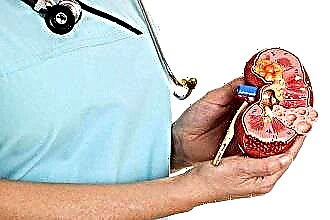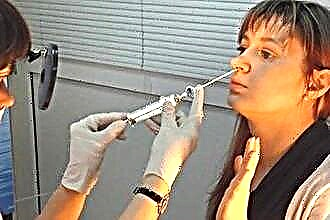About 30-40% of people on the planet suffer from regular high blood pressure. How to get a disability in case of hypertension and what is needed for this, what conditions are considered extremely dangerous and how do the preparatory measures take place? A special commission, which assesses the patient's condition, should decide the issue of a person's disability. It all depends on the stage of hypertension and the disorders in the body caused by the disease.

Hypertension degree
Arterial hypertension can seriously damage internal organs, disrupt their work. The heart and blood vessels are especially affected by this disease. Constantly high blood pressure in a person requires special working conditions, which the employer is obliged to create for his employee.
The diagnosis of "arterial hypertension" is made in a patient whose blood pressure may regularly rise above 140/90 mm Hg.
This situation already negatively affects human health, he needs constant medical supervision and the appointment of antihypertensive medications.
Disorders in the body:
- The vasoconstriction occurs.
- Visual impairment.
- Disruption of the entire cardiovascular system, heart rhythm failure, deterioration of the blood supply to the left ventricle of the heart due to an increase in its mass.
- Disorder of renal activity due to the high load on this organ.
- Rapid development of atherosclerotic lesions of the vessels of the brain, heart, aorta.
With hypertension, various organs can suffer, doctors call them target organs. The attending physician assesses the risks of such a patient in order to determine whether he needs a disability group, or the person is still fully able to work.
The symptomatology of the disease can manifest itself in different ways, depending on the degree of prevalence of the pathological process. If the patient already has 3 stages of the disease, then getting a disability due to hypertension is not only possible, but also necessary. It is believed that people with such health problems should not work, since any load is fraught with dangerous consequences for him. At stage 1 of the disease, the issue of disability or restriction of work activity is resolved separately, in each specific situation.
It is believed that hypertension develops gradually, so doctors classify the disease by degree or stage. The onset of the disease can usually proceed unnoticed for a person, but this does not mean that without health consequences. However, with arterial hypertension of 1 degree, the risk of serious disorders of the body is minimal, but the creation of favorable conditions for work is necessary, so the doctor can send such a patient for a medical examination.
Features of the 1st degree of the disease:
- The increase in pressure occurs periodically.
- Heart damage has not yet been observed.
- The person's ability to work is preserved.
The manifestations of the disease in this course of the disease are weak. People experience ailments only during periods of high blood pressure.
Symptoms of the 1st degree of the disease:
- pain in the head, which increases with physical exertion;
- increased heart rate;
- noise in ears;
- mild aching pains in the left side of the chest, which can radiate to the scapula;
- flashing flies before the eyes.
The disability group for hypertension of the 1st degree is not prescribed, since the symptoms occur from time to time and are not considered severe. However, we must not forget that the disease is capable of progressing, so you need to constantly monitor your health. Such patients need to improve working conditions. Noise, vibration and night shifts are contraindicated for hypertensive patients, even if the pathology is only at the initial stage of development.
Do you give disability in hypertension of the 2nd degree? It is impossible to answer this question unequivocally, the decision is made by the commission.
This stage of the disease is characterized by a regular increase in pressure within 180/110 mm Hg. Art.
 Features of the 2nd degree of the disease:
Features of the 2nd degree of the disease:
- Damage to target organs; conditions associated with this.
- Heart rhythm disorder.
- Violation of cardiac activity and damage to the muscle tissue of the organ.
- Vascular thrombosis.
Disability with such a course of the disease is quite real, since the degree of risk in the second stage of hypertension can be up to 4. It all depends on concomitant pathologies - often diabetes mellitus, severe damage to blood vessels and internal organs. A person's condition is considered severe, since the symptoms are pronounced.
Symptoms of the 2nd degree of the disease:
- feeling of constant tiredness;
- increased sweating;
- redness of the skin, especially the face, due to hyperemia;
- swelling of tissues due to kidney damage;
- vision deviations;
- nausea;
- tremor of the upper limbs;
- hypertensive crisis that occurs frequently.
The symptoms of this stage of the disease can be different, since the activity of many organs is upset from high pressure. Doctors regard such a condition as severe, and usually patients with grade 2 hypertension have a disability.
Special working conditions for this category of people must be observed.
Activity restrictions:
- Work in hot shops.
- Reducing the workload that requires high concentration of attention.
- A ban on activities with increased emotional, physical and mental stress.
- Reduced overall working time.
This ailment requires constant treatment and control, as it quickly passes into stage 3.
Grade 3 hypertension can be considered the most dangerous form of this disease, since there are a lot of disorders in the body, which forms risk 4 - a high degree of possible destruction of organs and body systems. The third stage of the disease proceeds with pronounced symptoms, which includes a general deterioration in well-being and severe pain in the heart.
Patients with this stage of the disease are usually recognized as completely disabled, therefore it is necessary to give them a disability. However, the question of the group remains important. Some patients may be considered partially able-bodied, they are allowed to work in improved conditions or at home.
Only specialists working in the bureau of medical and social expertise decide which disability group is assigned to a particular person with hypertension, and only after a thorough check will this patient receive it.
How to get a disability group?
Getting a disability is a long process. At the first stage, the patient must write a statement to the head of the medical institution in which this patient is registered. A referral to undergo a medical and social examination must be written by the attending physician. All medical documentation must contain a detailed description of all body disorders that have occurred against the background of hypertension.
Direction content:
- characteristics of the patient's health status;
- data on the degree of disorder of body functions;
- the results of therapy and all measures of treatment of the disease.
In addition, the patient needs to undergo a series of examinations proving the presence of the disease itself and all disorders.

Analyzes and diagnostic measures:
- General blood analysis.
- Blood biochemistry.
- General urine analysis.
- Electrocardiogram.
- Eye examinations.
- Ultrasound of internal organs.
- Conclusion of all specialist doctors (surgeon, neuropathologist, cardiologist and others).
Depending on the course of the disease, the attending doctor selects examinations for patients. Also, the symptomatology of the disease plays an important role in diagnostic measures.The examination takes place in a specialized institution, but sometimes specialists go home if the patient is not able to come on their own. The decision on recognizing a person as a disabled person is taken by the commission that conducted the consultation.
Among other things, the established group of disability is given to the patient for one year, after which it is necessary to undergo re-examination annually. Only if a person is given 1 disability group, then re-examination must be carried out after 2 years. There are certain conditions under which a group can be established once and for life.
Who is exempt from re-examination:
- Women over 55 years of age.
- People with disabilities who have irreversible defects in the anatomical structure.
- Males over 60.
If a person is recognized as disabled due to hypertension for several years in a row, then the commission can make a decision on recognizing him as disabled for life, without the need for an annual re-examination.
Features of the classification
 To assign a disability group, doctors study the patient's anamnesis, the frequency of his visits to the clinic and other medical institutions, and the extent of the prevalence of hypertension.
To assign a disability group, doctors study the patient's anamnesis, the frequency of his visits to the clinic and other medical institutions, and the extent of the prevalence of hypertension.
What is taken into account:
- With what frequency and how severe are hypertensive crises.
- Concomitant pathologies, complications, as well as the severity of their course.
- Features of the work of each patient associated with the profession.
The third point is not considered particularly important, since if a person is completely disabled, he is suspended from work, he is assigned a monthly pension.
Is it possible to determine in advance which disability group is assigned to a particular person? There are criteria that are basic when registering persons for incapacity for work.
- Group 3 is usually given to patients suffering from grade 2 hypertension. Given the fact that this ailment is not very dangerous and proceeds with mild damage to target organs, the person is recognized as partially able to work. Such people need to create certain working conditions, eliminating harmful effects.
- Group 2 for hypertension is given to people with a malignant course of the disease. Usually, patients have moderate damage to the kidneys, heart and other internal organs, and heart failure is also mild. Group 2 disability can be working, but often it excludes all types of work activities of the patient.
- Group 1 is assigned to patients with hypertension, if the course of the disease is severe and does not respond to therapy. With such pathologies, severe heart failure is observed, the functions of target organs are significantly impaired. A person is recognized as completely incapacitated, he cannot perform any work.
Many people with persistent high blood pressure do not know how to get a disability group. First of all, you need to contact your doctor with this question, he will give all the recommendations, send you for examination. Hypertension is considered a serious illness, so a person can become disabled. All organs and tissues of the body are affected, vital processes are disrupted and the state of health worsens, therefore, more than half of such patients are disabled.



